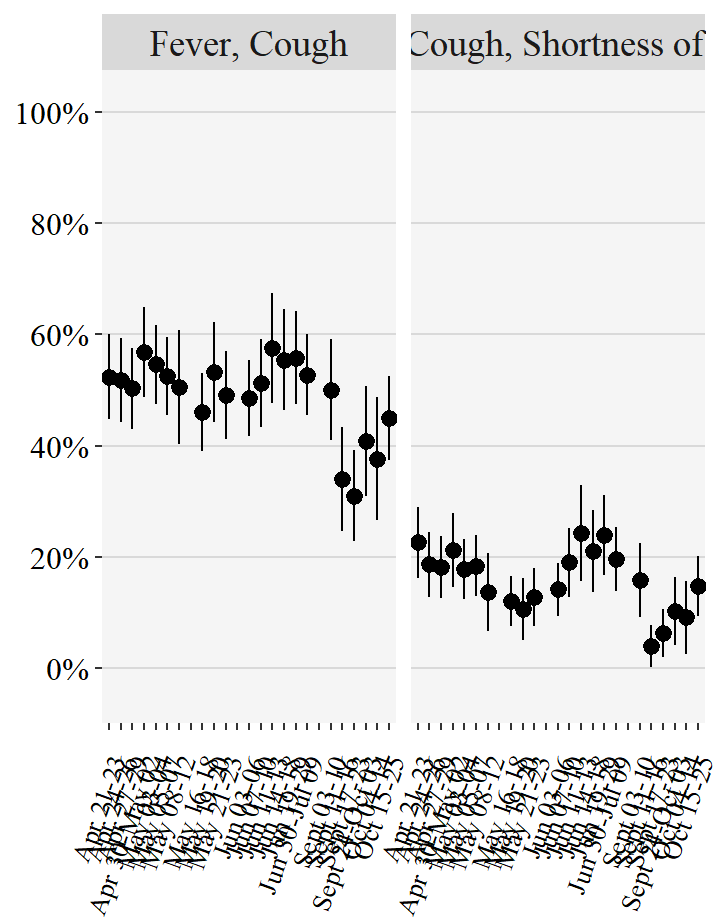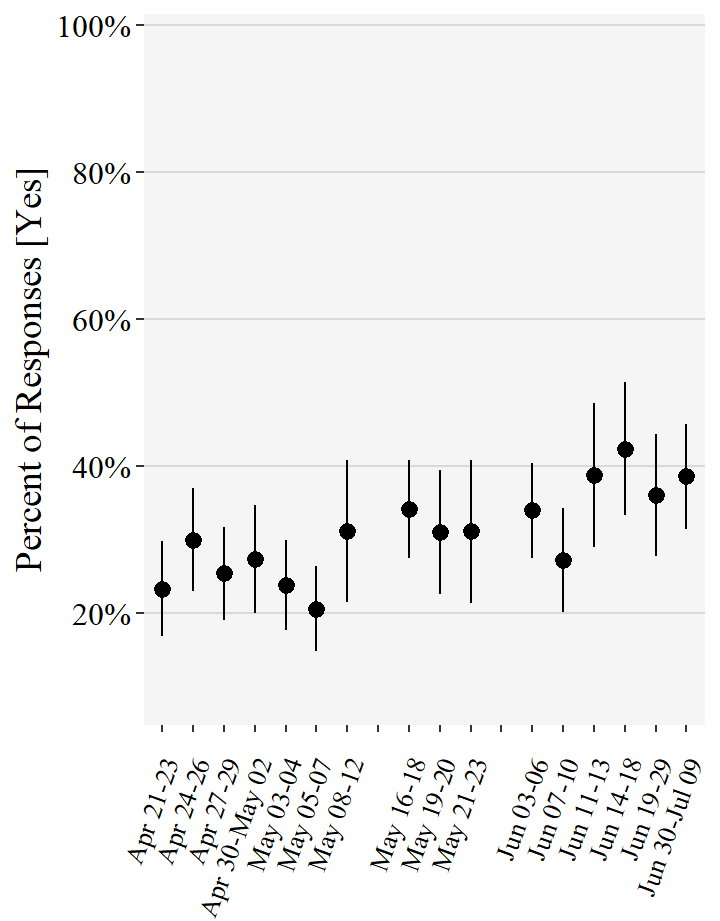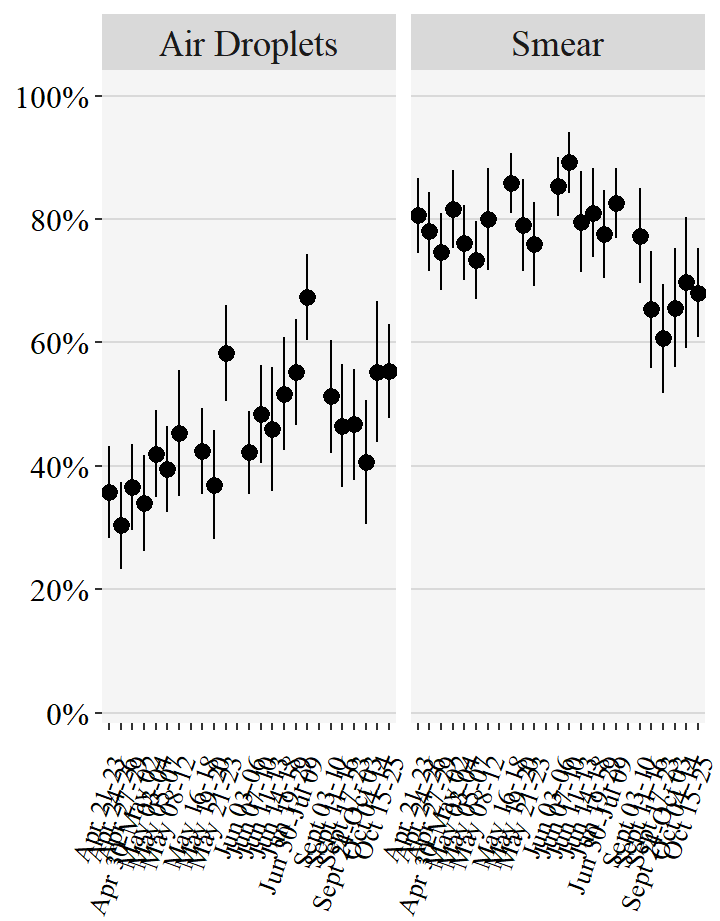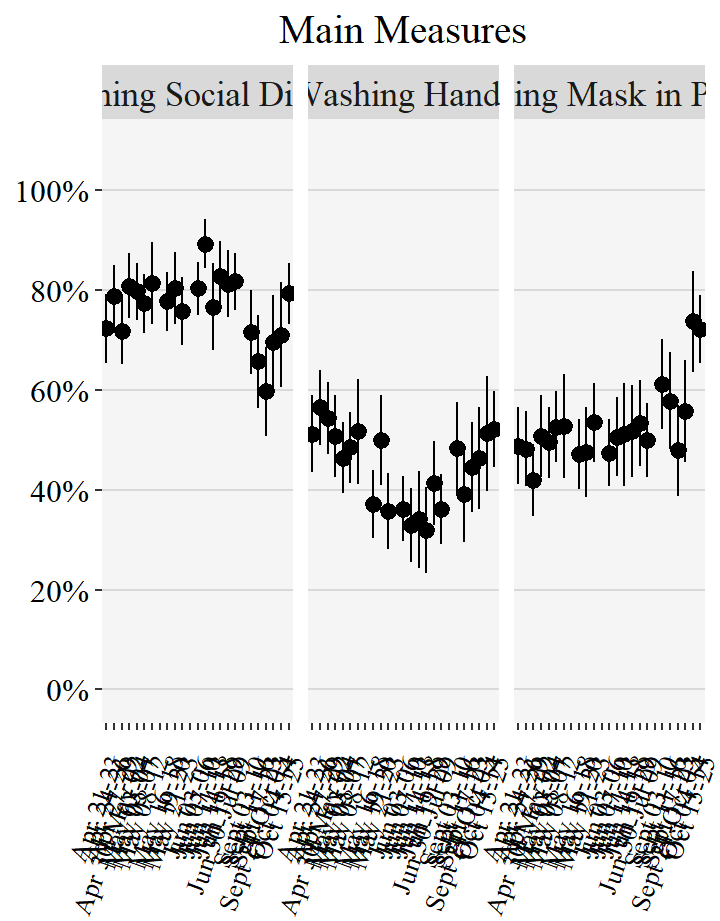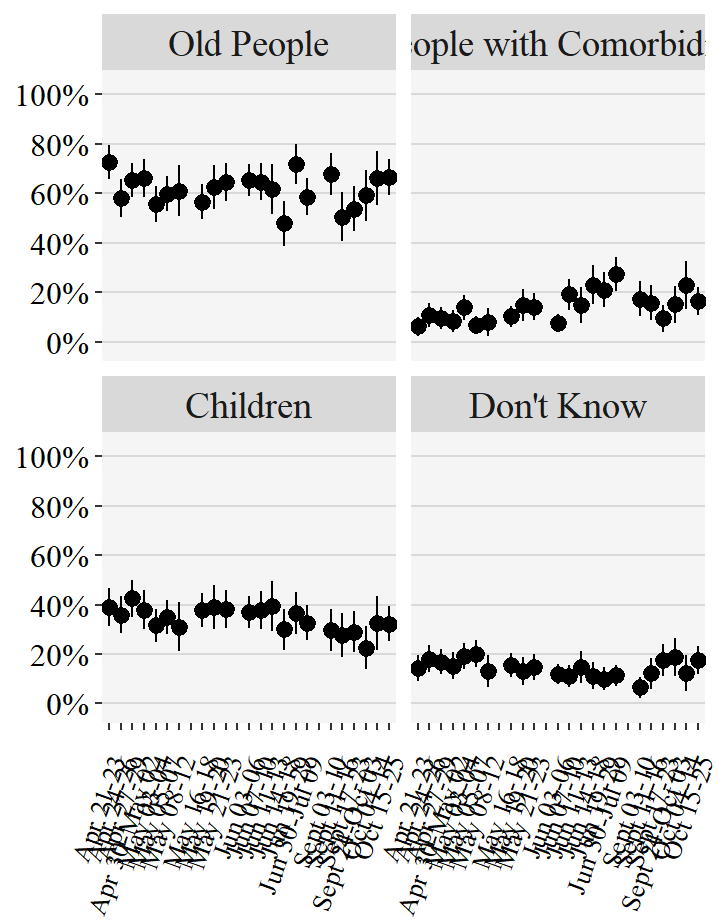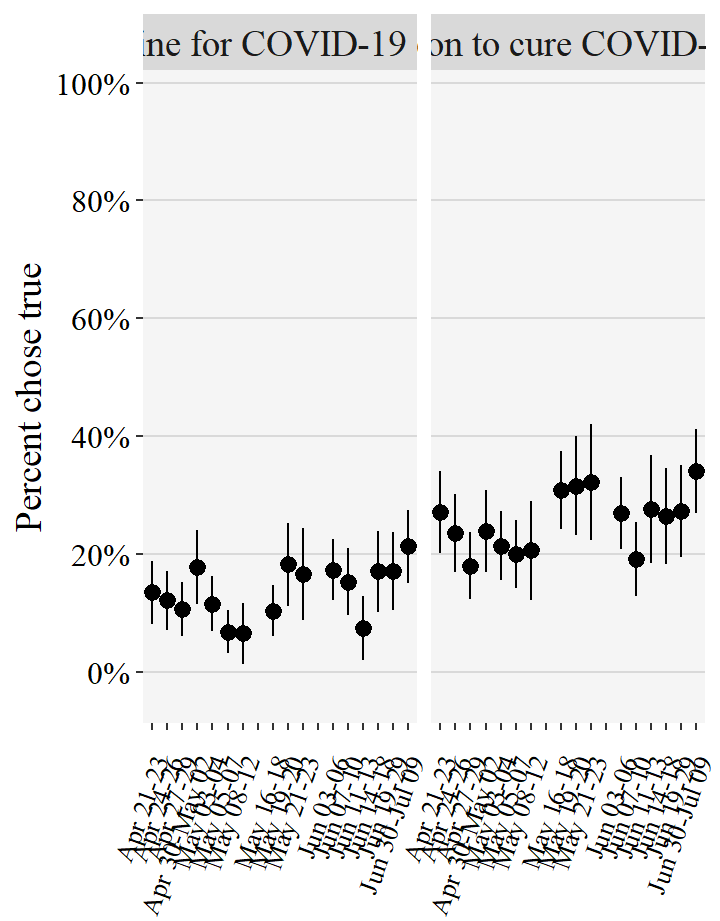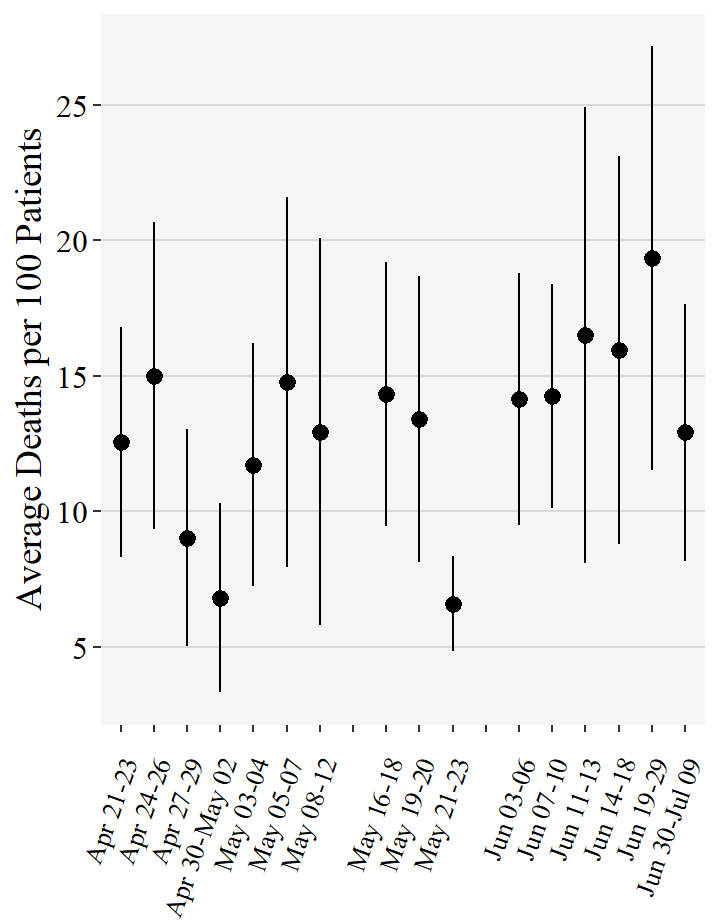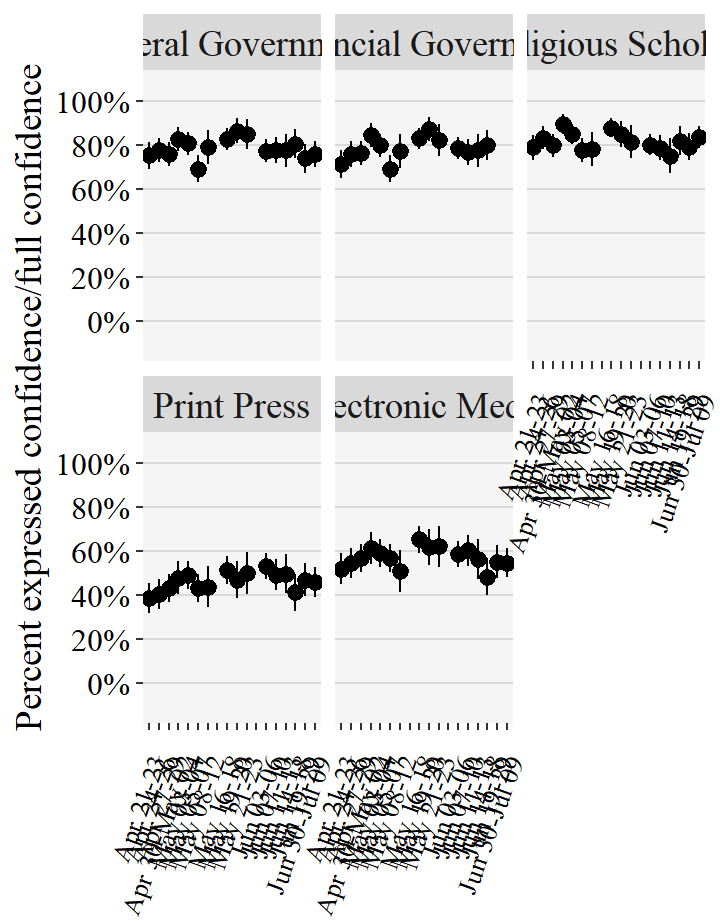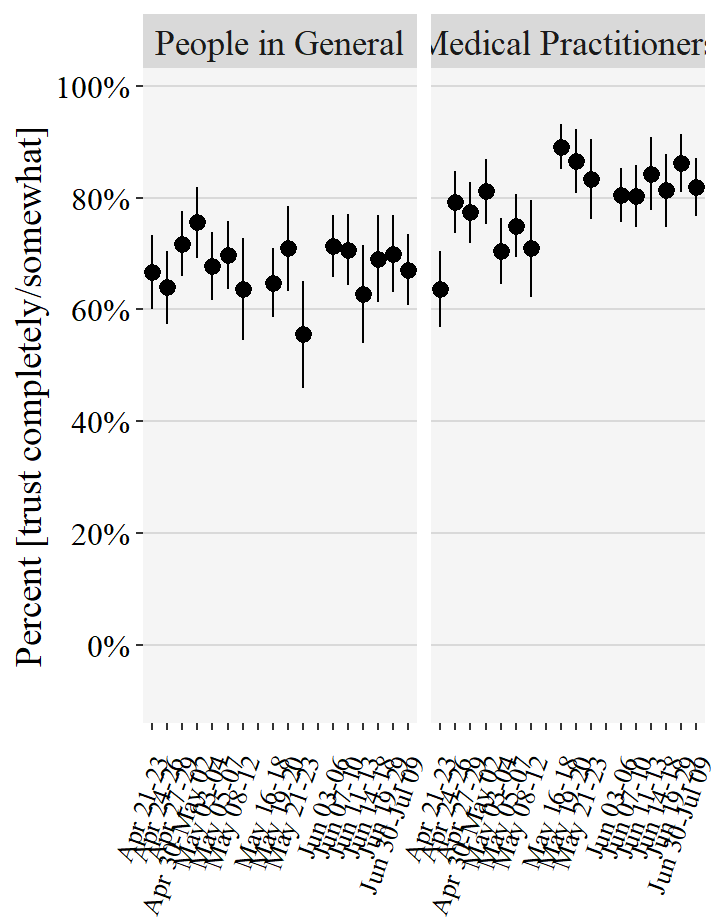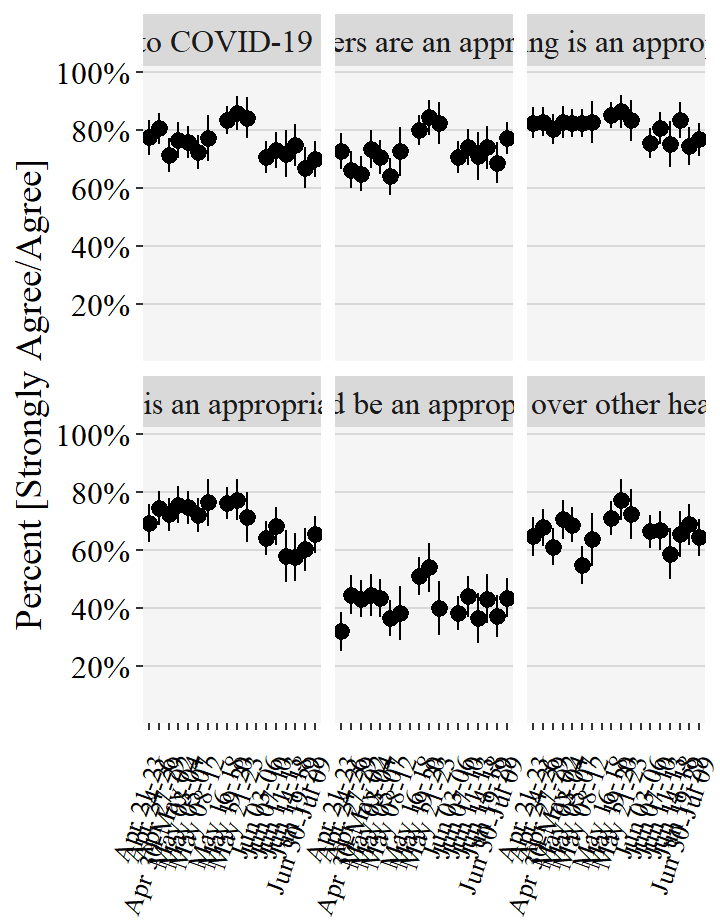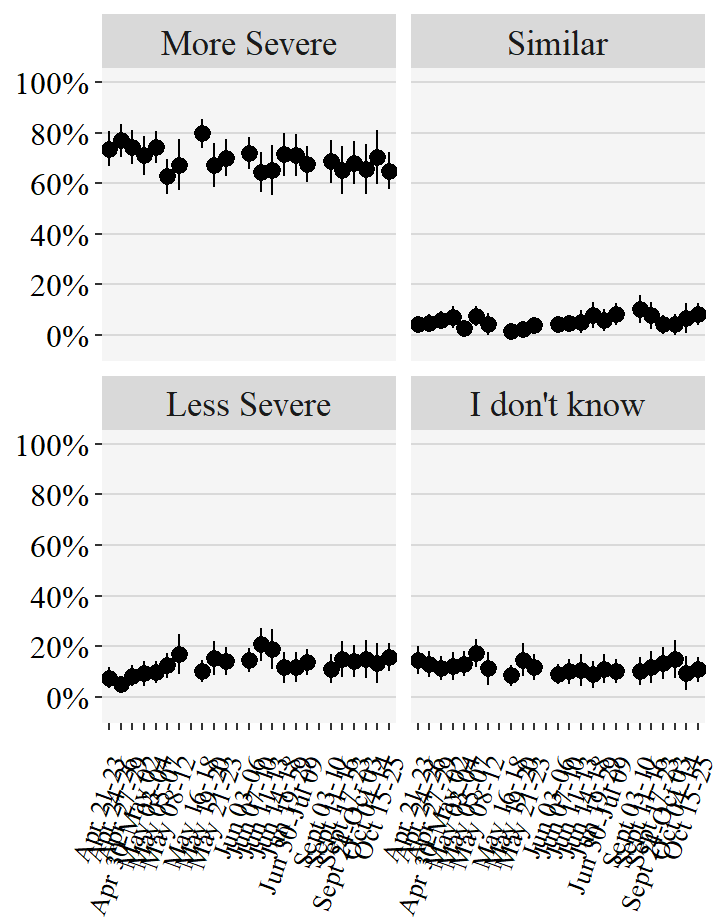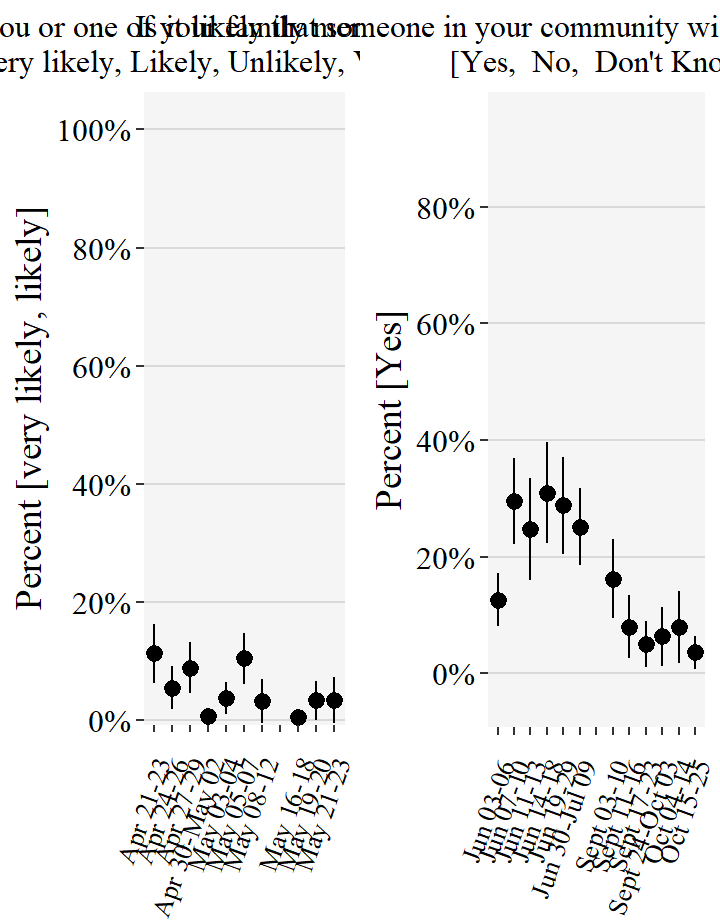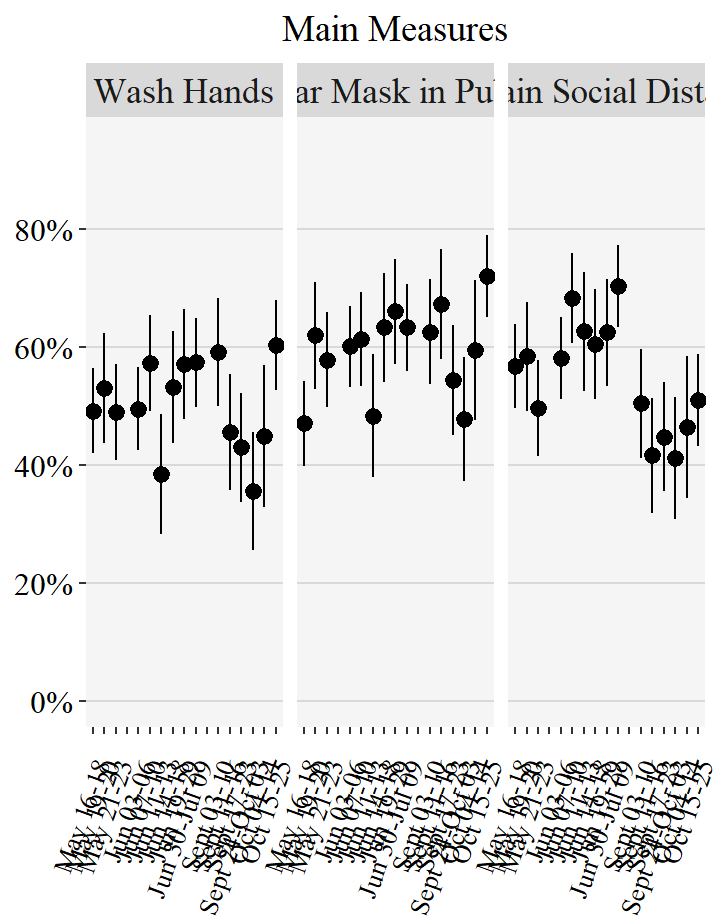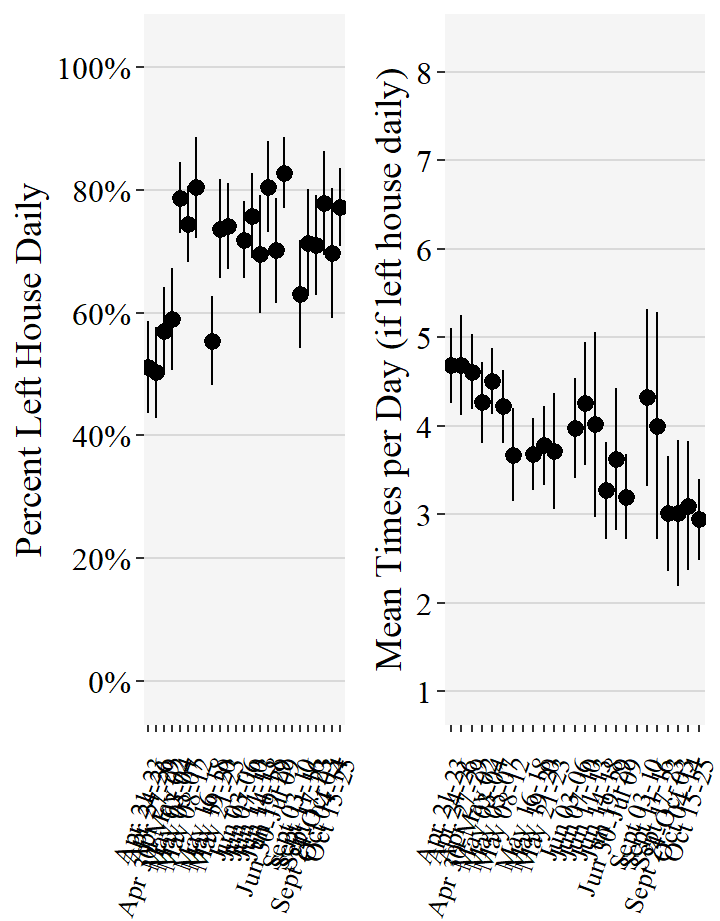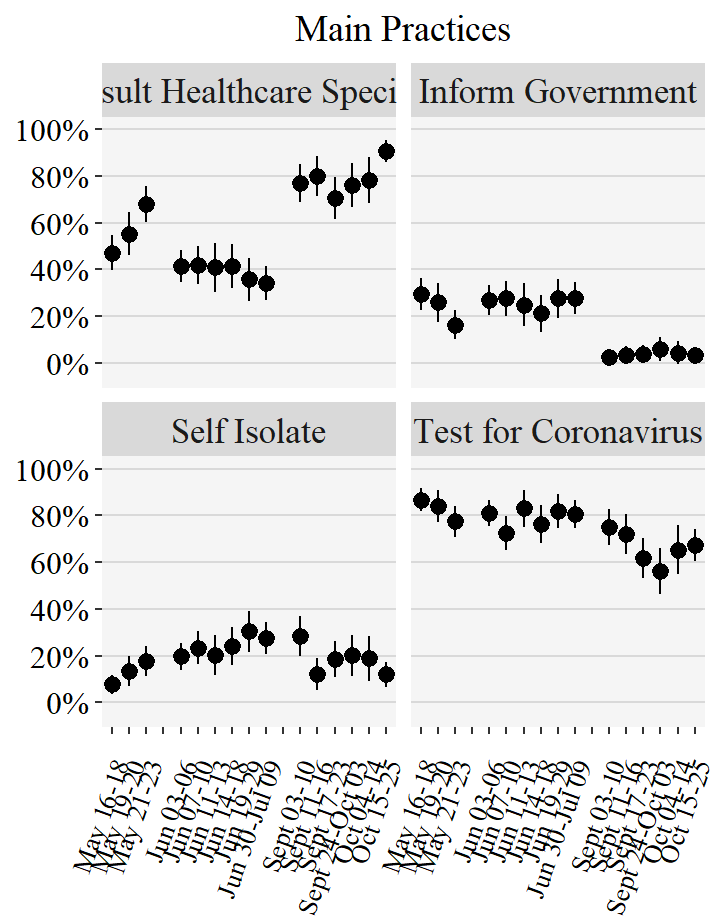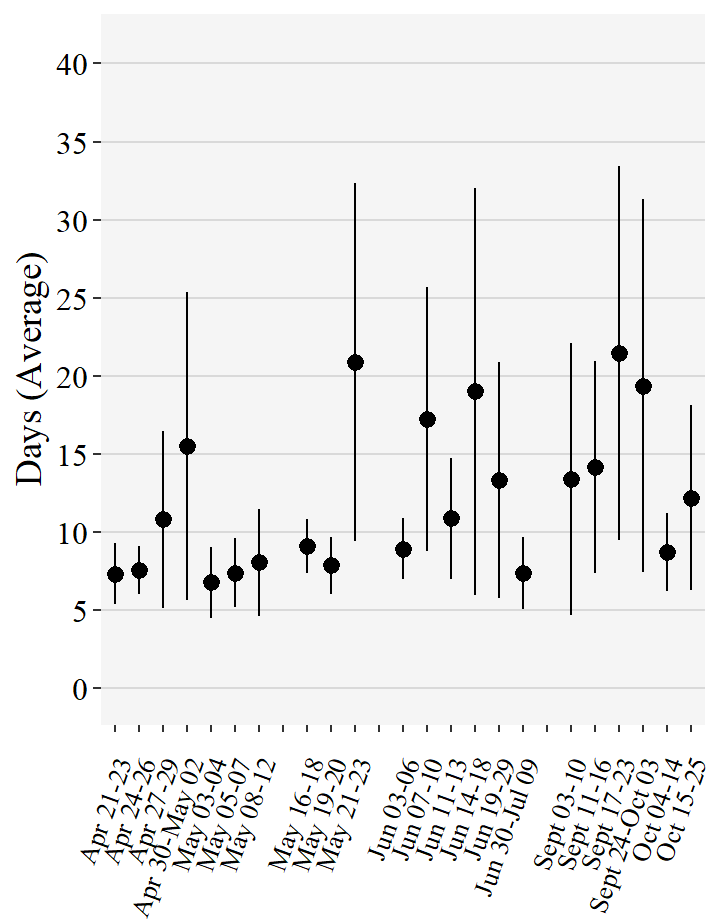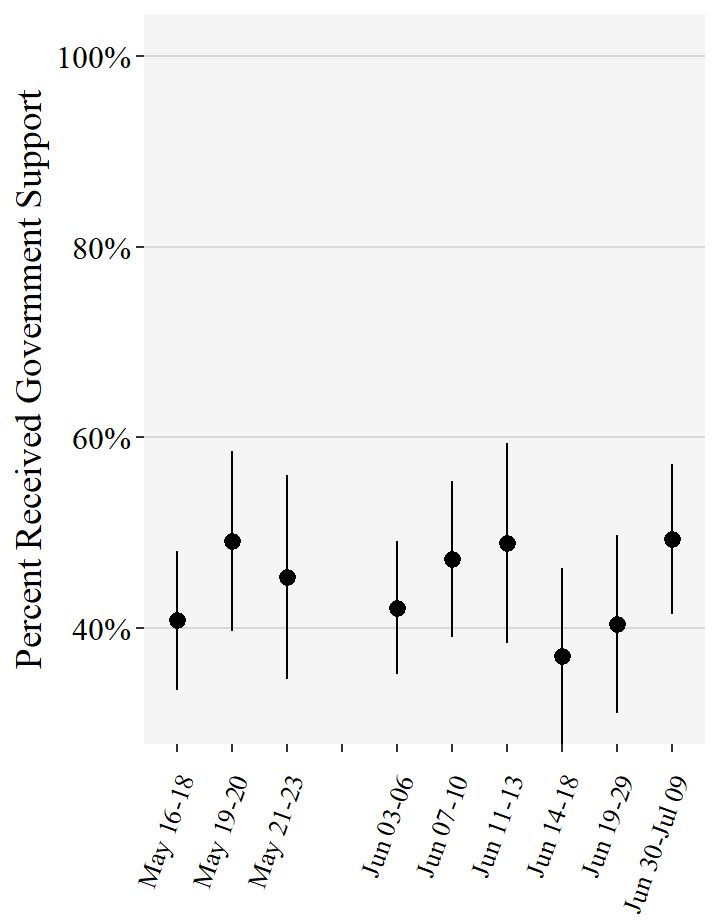Home
Row
Sehat Sahulat COVID-19 Study: Knowledge, Attitudes, Practices, and Economic Consequences among the Low-Income Households in Khyber Pakhtunkhwa, Pakistan.
Sehat Sahulat COVID-19 study is a collaborative effort of an international, multi-disciplinary team of researchers. This dashboard incorporates results from a telephone survey that tracks COVID-19 related knowledge, attitudes, behavior, and income changes in Khyber Pakhtunkhwa (KP) Pakistan, from April until October 2020. In addition, we are testing interventions to tackle the COVID-19 related information constraints and to promote preventive health behavior in the high-risk population.
Highlights- Adoption of preventive measures remains limited.
- Majority of people experienced a decrease in or complete loss of income and have a limited resource availability for self-isolation.
- Confidence in the government and the COVID-19 policies is generally high, but there is less support for stricter measures.
Row
Logos




Demographics
Row
MAP
Age
Row
Respondents by Profession
Gender
Knowledge
What are the most common symptoms of COVID-19?—open question

Who is at risk of developing severe COVID-19 illness?—open question

Who is at risk of developing severe COVID-19 illness?—open question
Are the following statements true? [True, False, Don’t Know]

Attitude
Do you agree or disagree with the following statements? — [Strongly Agree, Agree], [Disagree, Strongly Disagree]

How severe do you perceive COVID infection as compared to other common infectious diseases in your area?

How likely

Practice
What COVID-19 preventive measures do you follow regularly?—open question.

How often did you leave the house during the past 7 days?

Why did you have to leave your house during the last seven days?—open question
What would members of your community do if they feel that they might have symptoms of COVID-19? —open question
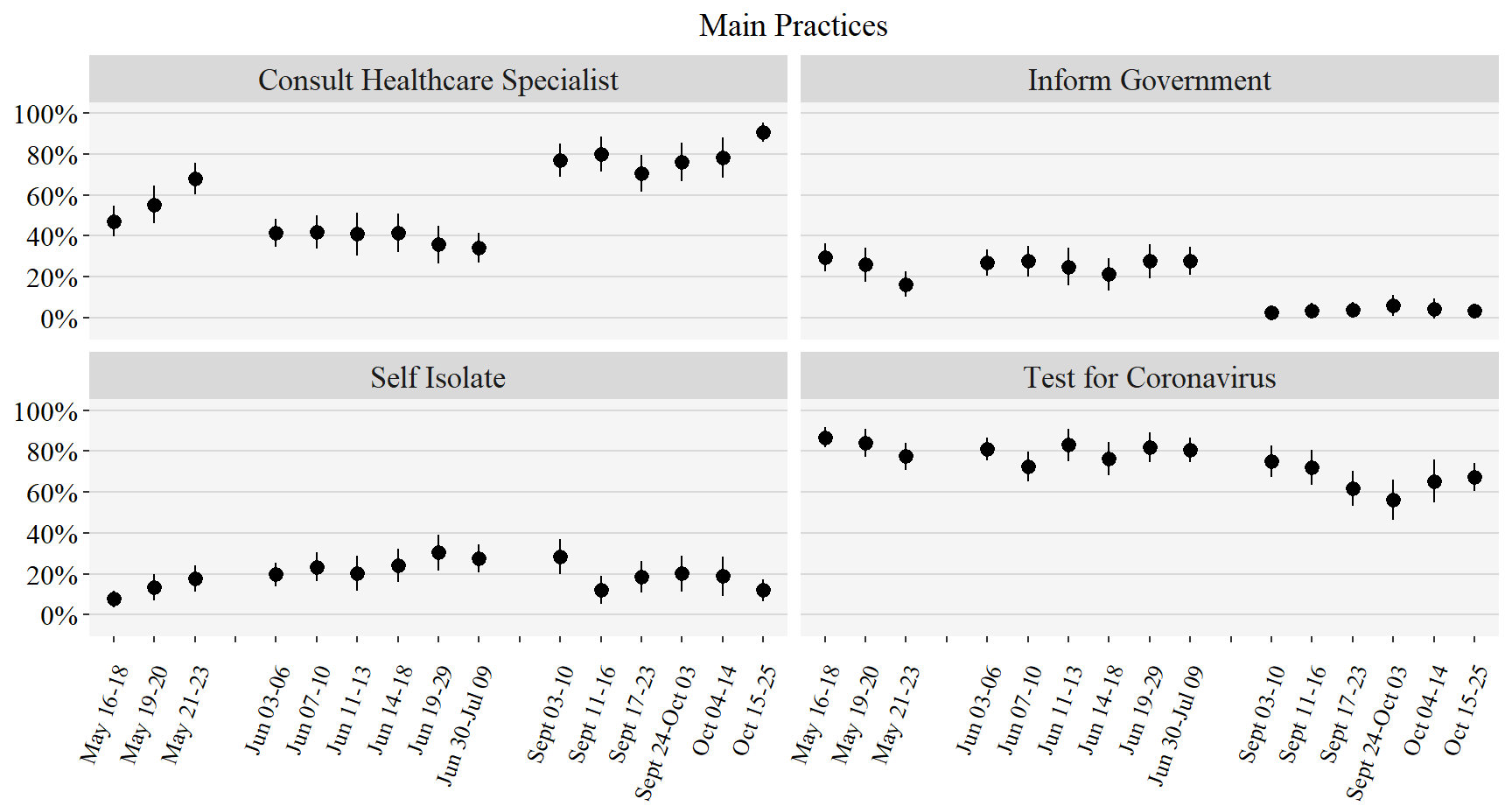
Economic Consequences
Did your household have any income changes during the past two weeks?—[Unchanged, Decreased, Complete Loss, Increased]
For how many days do you have monetary resources in case of a lockdown?
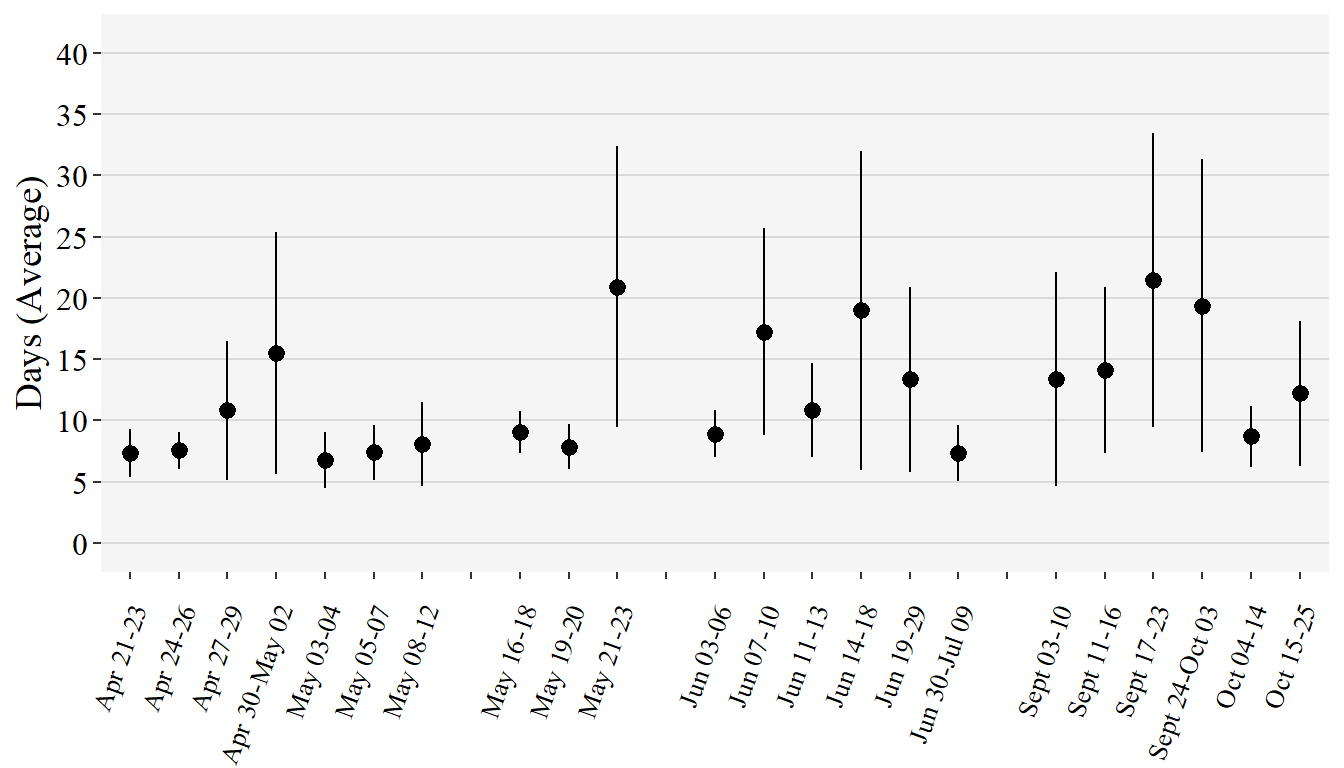
Do you get any sustenance support from the government since the start of the lockdown? [Yes, No]
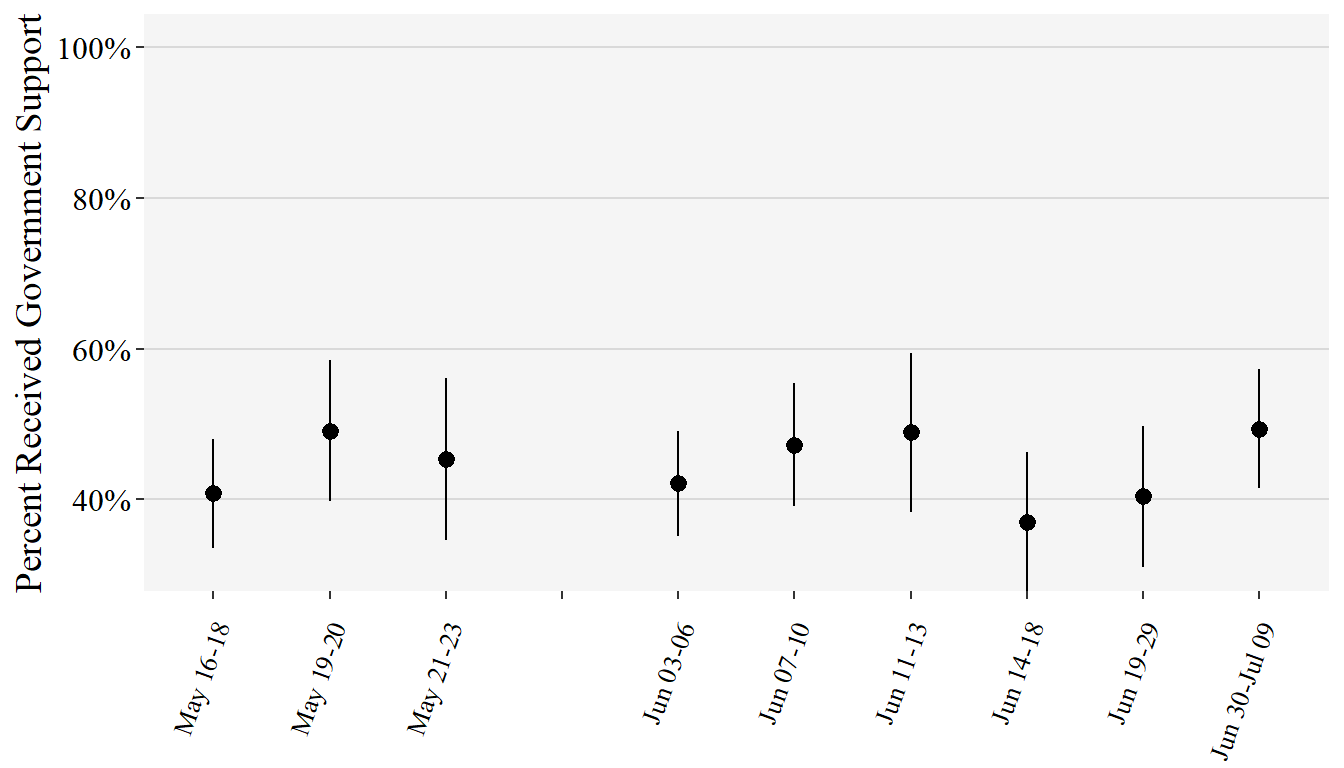
What kind of economic support did you receive from the government since the start of the lockdown?
About
Investigators

https://sites.google.com/site/landmannecon/
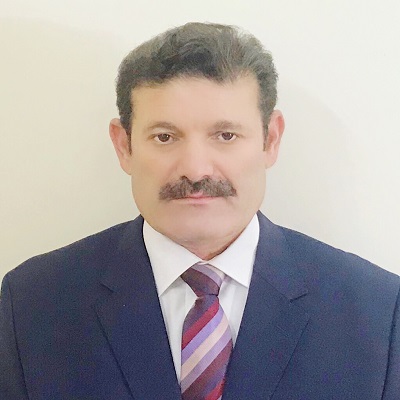
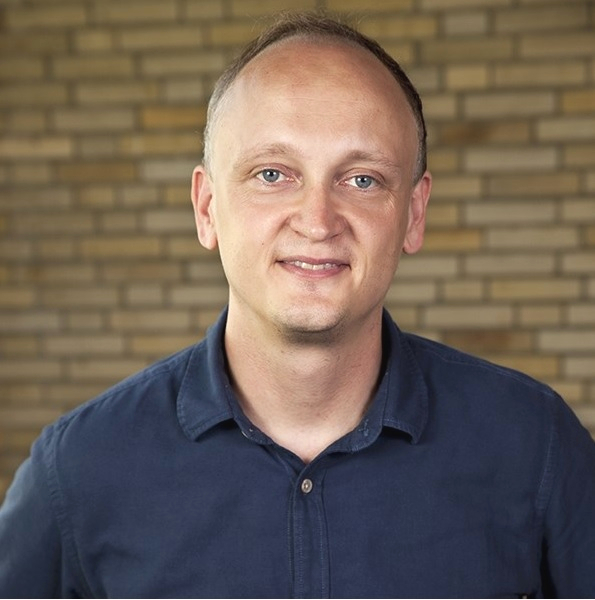
https://www.uni-goettingen.de/de/450695.html
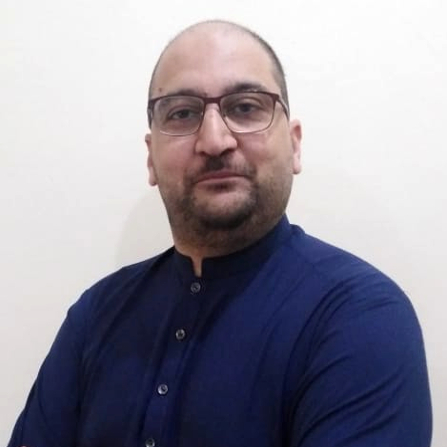
The University of Edinburgh, Scotland
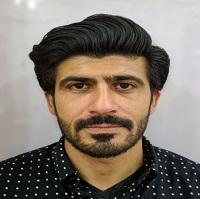

PhD Scholar (Economics)
Leibniz University of Hannover; Georg August University of Göttingen, Germany
https://www.uni-goettingen.de/de/588063.html

MBBS, MSc (Oxon.)
Research Fellow
Georg August University of Göttingen, Germany
https://www.uni-goettingen.de/en/muhammad+jawad+noon/620913.html
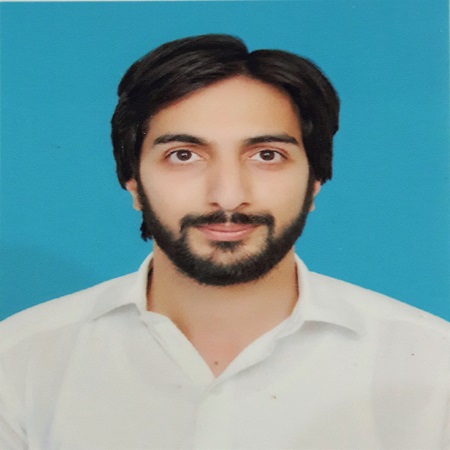
Study Coordinator
ICU Healthcare, Pakistan
Recommended Citation
Raheel Shahab Khan, Sheraz Ahmad Khan, Zohaib Khan, Andreas Landmann, Muhammad Jawad Noon, Lisa Rogge, Muhammad Riaz Tanoli, Sebastian Vollmer (2020). Sehat Sahulat COVID-19 Study. Sehat Sahulat Program, Khyber Pakhtunkhwa, Pakistan. Access at https://sehatinsafcard.com/covidstudy/dashboard.html
Publication
Trial Registration: Information Constraints and Preventive Behavior amongst COVID-19 Risk Groups in Khyber Pakhtunkhwa, Pakistan. AEA RCT Registry. Access at https://www.socialscienceregistry.org/trials/6307
Feel free to contact us if you have any comments or questions
Contact Us